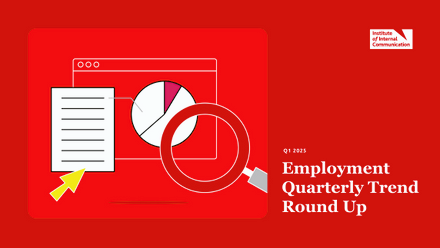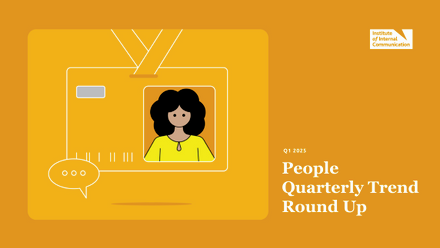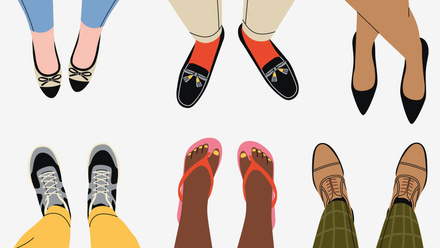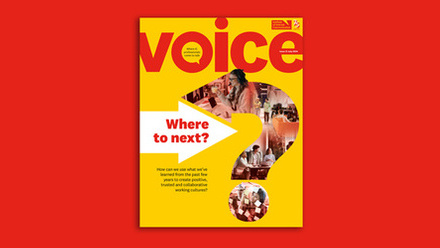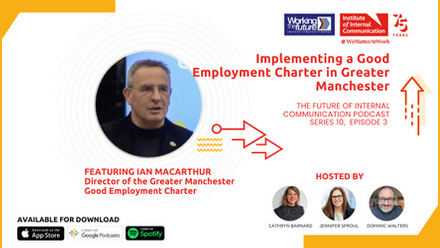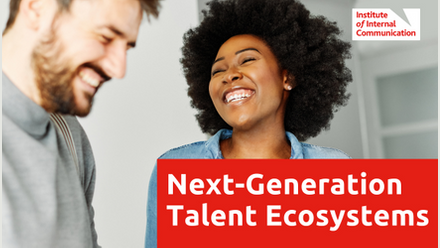Every generation has acquired its labels that suggest shared beliefs, behaviours and values.
I’m a Baby Boomer. Apparently I have a strong work ethic, and am pretty self-assured, resourceful, competitive, creative and happy go lucky. But, according to the labels, I’m also selfish and individualistic, and ruined the global environment.
Of course, not everyone of a similar age is exactly the same. I read one report that said a generation may share as little as 10% of the same characteristics, so this over-simplification of the complex nature of human behaviour is clearly all a generalisation.
However, Gen Z (those currently aged between 16 and 24) will make up 39% of the workforce next year and that figure jumps to 70% by 2030. This means that awareness and understanding of some of these supposedly common characteristics and their impact on the workplace and engagement feel important.
In a survey by ResumeBuilder.com, 74% of managers and business leaders reported that they find Gen Z more difficult to work with than other generations. The respondents reported that this group tends to feel entitled and demonstrates a lack of effort, motivation and productivity.
Yet work is an important part of Gen Z identity.
UK workers aged 16-24 are more likely to say that their job is important to their personal identity (28%) than those Brits over 45 years of age (15%). Gen Zers know their own worth at work, what they can offer, and are entrepreneurial, confident and tech-savvy.
The pandemic hit Gen Z hard. Although all generations suffered from the economic and mental health consequences of the pandemic, evidence suggests that Gen Zers were hit the hardest by mental health, job loss and unemployment. Those in education also faced huge challenges – sent home from universities, with exams and graduations cancelled, and career plans disintegrated.
Harvard Business Review’s Lauren Stiller Rikleen said: “Gen Zers experienced the greatest national trauma since the Great Depression and World War II.”
So what impact may this have on the workplace?
Post-pandemic, Gen Z is experiencing different ways of working. Remote work and hybrid working now gives them a much better personal balance, so return to work mandates may increasingly not fit with their own needs, especially when 70% of them say that flexibility in their work schedule matters.
Gen Z has been painted as having an aversion to hierarchy and traditional power structures in the workplace. Employees in this age group are likely to be vocal in asking for more from their employers on issues from pay grades to demonstrating strong corporate social responsibility. They are the first true global citizens due to their digital connectivity and expect firms to show, not just tell, believing that business has a significant role to play in addressing social and environmental issues.
This generation also champions inclusivity, with higher expectations than previous generations. A survey by the BBC in the UK found that Gen Zers are typically far more concerned about prejudice towards LGBTQ+ people, gender equality and racism than the older generations. They are more open-minded and aware when it comes to gender and identity. Many Gen Zers, for example, will include their pronoun preferences in their email signature and social media bios, and want to see evidence and actions that show that their employer values diversity and inclusion.
They also want easy-to-find guidance and accessible resources on wellbeing and a supportive working environment.
In light of the growing number of Gen Zers in the workplace, how can internal communications best support integration and engagement?
- Do you know the people data in your organisation? Can HR share details of generational splits, for example? This data will help you to understand your biggest audiences and help to define and inform comms strategy and approach so that what you do as a communicator is targeted and relevant.
- Gen Zers are true digital natives and haven’t known a world without the internet. They want information at their fingertips and instant virtual connection. Is your intranet as accessible and user friendly as possible, and do collaborative platforms and tools work efficiently? Can you use this group as ambassadors or champions; harnessing their digital skills to lead and inspire others in your organisation?
- If you have Gen Zers in your team, encourage them to be in the office regularly and initiating face-to-face communications and interactions with colleagues, clients and bosses.
- Gen Z’s social media upbringing has also left many with limited exposure to formal communication, which doesn’t always sit well in a more hierarchical and corporate organisation. Gen Z tends to have a more relaxed and conversational tone, with high-energy phrases and ‘up-talk’.
There are signs that language and communication are therefore evolving in the workplace. In the UK, a 2023 survey by Barclays showed that nearly three-quarters of respondents said that Gen Z is changing the formality of language in the workplace. So, while younger employees may be expected to adapt to more formal, corporate styles, senior leaders should also be open to more personal expression, and less corporate language in more informal environments. I’m not saying that leaders should start littering their conversations with ‘glow up’, ‘dank’ or ‘smol’ (IYKYK*) but can corporate language be made less formal and more authentic?
- Is there clarity around business/social purpose that links back to employees’ roles? Are policies on inclusion and diversity fit for purpose – can IC help to amplify and embed them? Are there listening channels, platforms and opportunities for employee voice? Are people encouraged and motivated to speak up and do they do so because you regularly feed back on what was said?
All of the above are best practice comms in any organisation, but reflecting communications through the lens of a new generation brings freshness and perhaps new thinking.
*Glow up = a makeover or transformation from bad to good; dank = excellent or of very high quality; smol = something that is small, and in most cases exceptionally adorable; IYKYK = if you know, you know.

